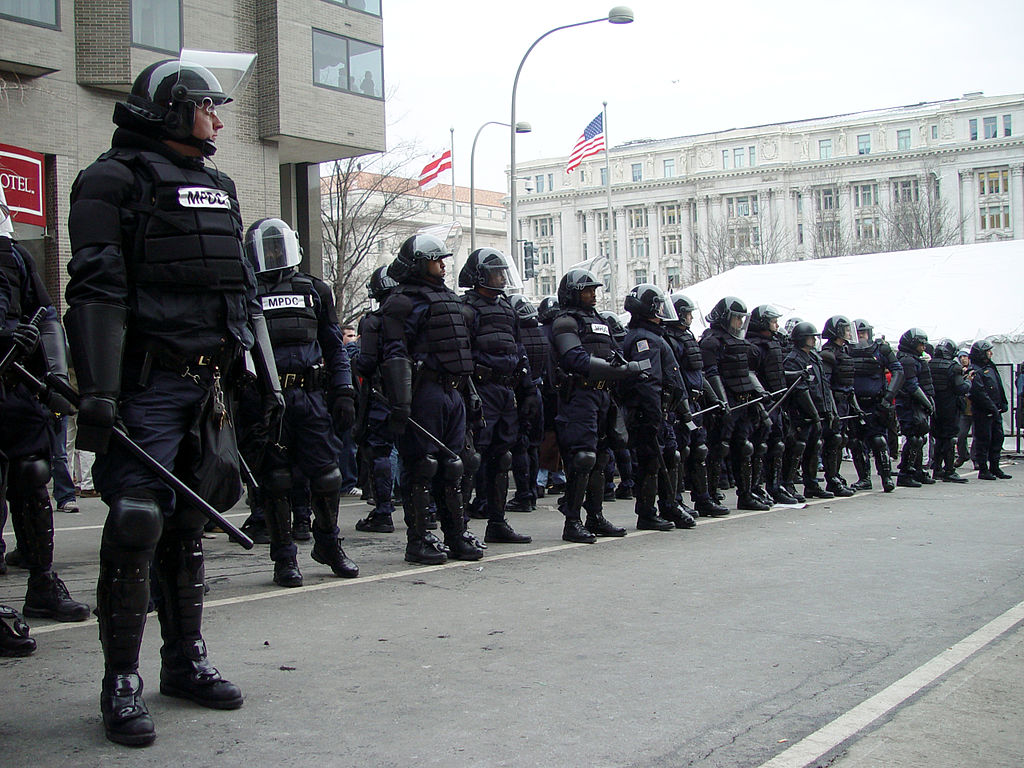Given the violent protests at the University of California, Berkeley against nativist troll Milo Yabba-dabba-dopoulos, it’s conceivable that University of Maryland students could face a dilemma sometime during the next four years: Is it okay to respond to the sins of the Trump administration with violence? Should one, in the heat of protest, throw a rock, damage school property or light a fire?
No. Violent resistance to the Trump administration is both unethical and counterproductive. Berkeley-style rioting fails to meet moral criteria for political violence and gifts the administration a compelling scapegoat.
First, a few caveats: Violent protesters make up a tiny segment of the protesting population. More than 3 million participated in the global women’s marches; a little more than 100 rioted in Berkeley. Additionally, Martin Luther King Jr. was generally correct when he described a riot as “the language of the unheard.” Rioters, especially those of desperate socio-economic background, deserve compassion. Finally, non-violence isn’t the only morally viable form of political resistance. Many of the folks who lecture protesters about the virtues of MLK and Gandhi forget that the United States was built on violent resistance to a repressive colonial regime.
Nevertheless, violent protest against Trump is morally impermissible and politically imprudent. To make this case, I’ll use a set of criteria known together as “Just War” theory. Built by a wide array of philosophers over the course of several centuries, this theory is intended to describe those situations in which moral war could be waged. While the theory usually refers to formally declared war, I’ll use it to evaluate political violence more generally.
The first criteria for engaging in moral violence is a just cause. Anti-Trump protesters want to protect marginalized communities and prevent the erosion of democratic institutions. The goals of the Trump resistance represent a moral cause, worthy of being fought.
Second, Just War theory requires that non-violent methods of recourse have been attempted and exhausted. With this standard, the justification for violent campus protest begins to crumble. In the United States, we have a prominent non-violent method of political recourse: elections. Protesters should attempt to topple the administration by the process enshrined in the Constitution before taking a revolutionary note from the Declaration of Independence. Violence becomes moral only when elections are so unfair that participating in them would be farcical.
Third, violent actors must have a chance of military success. If violent protests transform into a violent rebellion, rebels would inevitably have to face military or National Guard troops. A conflict between liberal college students and the United States Armed Forces might be the biggest rout in military history. Attempting to challenge the most powerful fighting force in history would ensure fruitless bloodshed and wasted lives.
Finally, Just War theory demands that a violent resistance not produce worse consequences than the evils originally being countered. Violent protests would be a huge gift to the administration, allowing Trump to consolidate political power. In his excellent Atlantic cover story, “How to Build an Autocracy,” David Frum observes the modern autocrat doesn’t have the capacity to command complete devotion from his people. America’s fractured media and politics prevent a 1930s-style tyrant from seizing power. Instead, writes Frum, “Polarization, not persecution, enables the modern illiberal regime.”
Trump’s most potent political talent is creating polarization between his political enemies and his supporters. If violent protests start erupting at American universities, Fox News and Breitbart — whose Trump-era coverage is catnip for the terrified — would frantically decry the out-of-touch and dangerous liberal youth. Small groups of violent protesters would define the millions of peaceful folks opposed to the Trump administration. This is already happening: On Fox News, Trump adviser Kellyanne Conway cleanly equated Berkeley protesters with the thousands of folks at airports peacefully protesting Trump’s abhorrent refugee ban.
Trump could easily neutralize campus protests, reassuring his supporters he has the strength to protect them from America’s existential threat: college kids. The 2020 election has the potential to be a powerful refutation of quasi-authoritarianism. Widespread campus violence might transform it into a mandate for American autocracy. Political movements self-destruct when activists adopt the tactics of their adversaries. The resistance to Trump won’t defeat him if it becomes dark, violent and tribal. It will become him.
Max Foley-Keene is a freshman government and politics major. He can be reached at maxfkcap2016@gmail.com.



